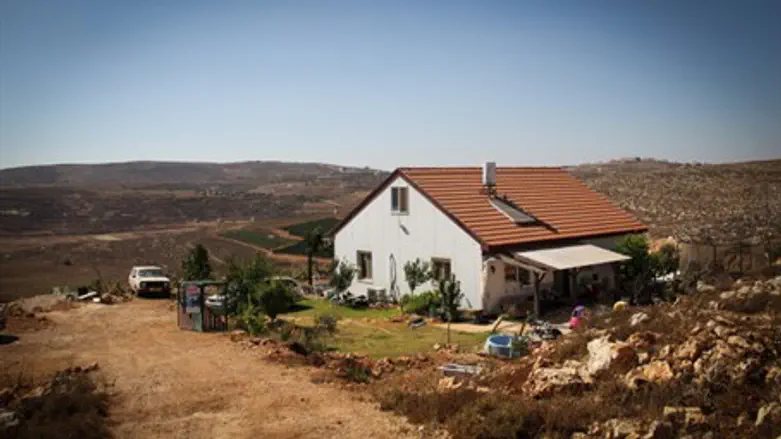
Nearly four years after the historic Levy Report was presented to Prime Minister Binyamin Netanyahu, sources responsible for the document have confirmed that despite refusal to formally adopt the report, the government is quietly implementing many of its proposals.
In the summer of 2012 a legal panel commissioned by the Israeli government to assess the status of Judea and Samaria according to international law produced a set of findings widely referred to as the Levy Report, named after the panel’s chief, Edmond Levy.
The report found that the case of Judea and Samaria was suigeneris, and as such is not within the penumbra of international laws restricting government action in hostile territory occupied in wartime.
Thus, according to the Levy Report, there was no legal impediment to Israel building in or developing areas of Judea and Samaria.
Then Secretary of State Hillary Clinton immediately condemned the report, as did the Israeli Left.
Among the report’s suggestions was the legalization of most Israeli communities over the Green Line which lacked full recognition by the state. These communities, often referred to as “outposts”, include Givat Assaf near Beit El, Mitzpeh Dani, near Maaleh Michmas, and Esh Kodesh near Shilo.
While Israeli nationalists praised the Levy Report, within months it became clear the coalition did not intend to adopt it proposals as government policy.
In February, however, the far-left NGO “Yesh Din” published a policy paper claiming that the Defense Ministry was quietly implementing key elements of the Levy Report, removing legal barriers to expansion of Jewish communities in Judea and Samaria and effectively giving retroactive legalization to existing “outpost” towns.
The paper, titled “From Occupation to Annexation”, was drafted by Yesh Din lawyers Shlomi Zecharia and Michael Sefarad. The two have in the past been involved in law suits which resulted in the demolition of Jewish communities like Migron and Amona.
According to the Yesh Din report, the years following the publication of the Levy Report saw a significant increase in the number of outposts given legal recognition. Some 30 outpost communities were either fully recognized or put on the road to legal recognition in the past few years.
While Defense Minister Moshe Ya’alon and ministry officials have refused to comment, Alan Baker, one of the authors of the Levy Report, has confirmed that the government has quietly adopted some of the report’s proposals.
Speaking on Friday, Baker claimed that the panel originally charged with drawing up the report never believed it would officially adopted. Rather, he argues, the goal was to provide the legal “tools” for action at a later date.
“Already from when we began to work ok on the report the intention never was that it would be officially adopted by the government. We simply wanted to provide the government’s various ministries operating in relevant fields legal tools [for different kinds of policies]. From what I’ve heard from different sources, I understand that they are gradually implementing [the report].”
“Are they adopted all of the recommendations? I don’t know. On the same day that the report was released there were legal experts who called it a disaster. Hillary Clinton condemned it even before it was translated into English.”
Baker pointed out that the report was far more limited in scope than what either its critics or supporters often claimed.
“On the left [people] thought it would legalize all illegal construction, while on the right [people] thought the report called for annexing the territories – and that’s totally wrong. There aren’t any political issues [dealt with] here. The three of us jurists [involved in the report] sat down and worked out the report in the most serious way, without any political biases so that we could put together a professional report.”
